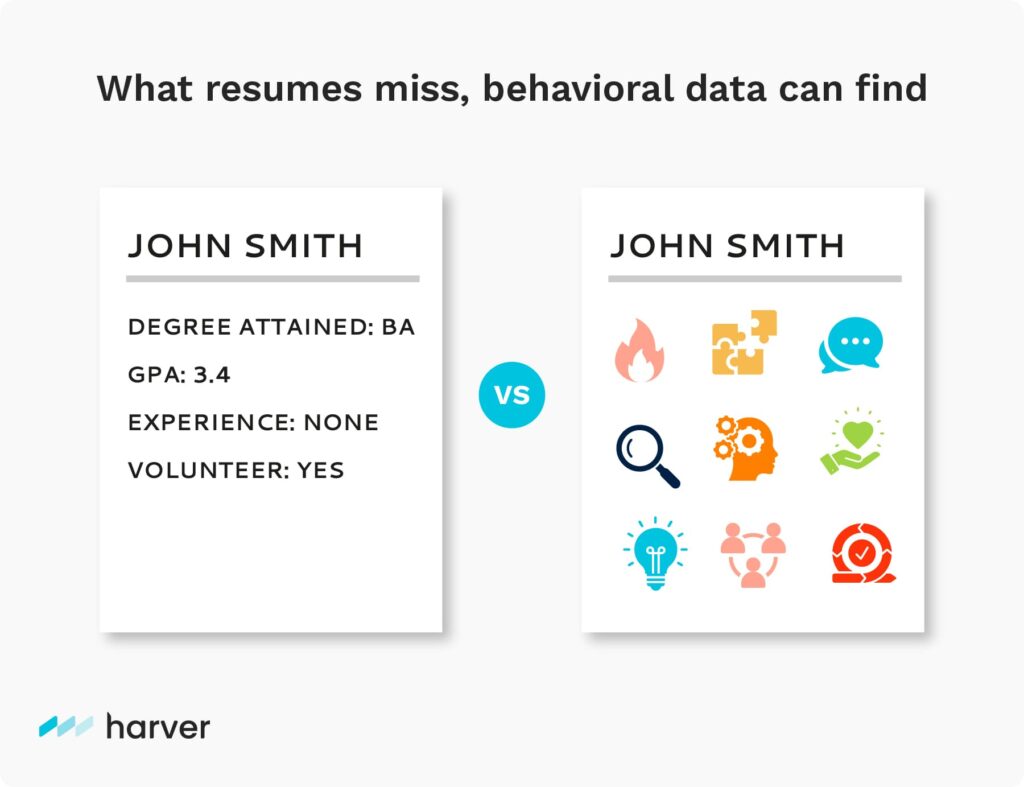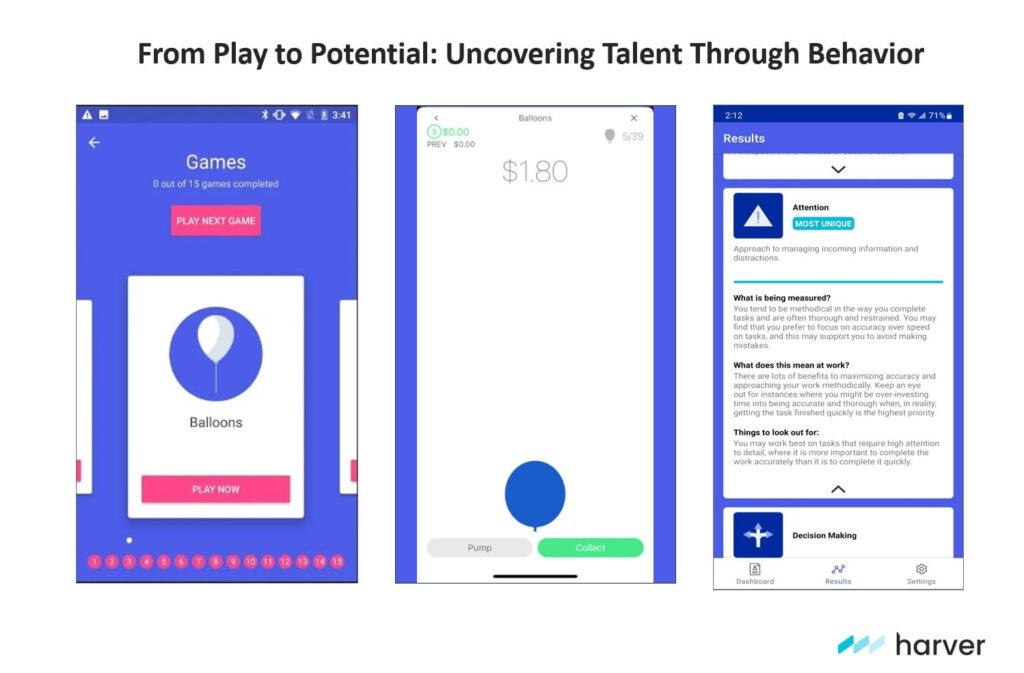Early Careers programs are booming, and so is the competition. With graduation season in full swing, companies are seeing an unprecedented surge in job applications for entry-level roles, internships, and rotational programs.
One organization Harver recently spoke with received over 30,000 applications for just 500 open roles. And they’re not alone. As more graduates flood the market, recruiting teams are feeling the pressure: how do you efficiently screen this kind of volume without sacrificing quality or fairness?
The answer? Skills-based hiring using science-backed behavioral assessments that help you go beyond the resume and focus on what really matters: potential.
Why Traditional Screening Falls Short
Let’s face it. Entry-level resumes don’t reveal much. Most candidates haven’t had years to build up a list of jobs, accolades, or achievements. That makes traditional screening tools like education and work experience poor predictors of success. Even worse, relying on these factors often reinforces bias and leaves great candidates behind.
What Early Careers teams need is a faster, fairer, and more predictive way to assess soft skills, workplace behavior, and long-term fit. That’s where Harver’s behavioral assessments come in.
Behavioral Assessments: A Better Way to Identify High-Potential Talent
Harver’s behavioral assessments are designed to predict job fit for any role based on how candidates think, work, and relate to others. Whether you’re using our traditional questionnaire-based assessment or our pymetrics gamified version, each tool is grounded in decades of behavioral science and validated to reduce bias.

Here’s what makes them work:
- Objective, job-relevant insights: Assessments focus on skills like learning agility, collaboration, effort, and focus—traits that actually drive success.
- Bias mitigation: Designed with fairness in mind, Harver’s assessments help reduce the influence of unconscious bias by removing subjective criteria.
- Built for scale: With automated scoring and easy-to-read dashboards, your team can instantly identify great-fit candidates without sifting through thousands of resumes.
- Data-driven decisions: Hiring teams can see real-time match scores, candidate distributions (e.g., poor/good/great fits), drop-off data, and more—all from one centralized view.
Learn more about Harver’s traditional behavioral assessments.
Want Gen Z Engagement? Make It Gamified.
If you’re hiring Gen Z, they’re over resumes and focused on your candidate experience. Harver’s pymetrics and gamified behavioral assessments combine neuroscience-based tasks with a sleek, mobile-friendly interface that keeps Gen Z candidates engaged—without compromising on scientific integrity.
These assessments are especially well-suited for Early Careers programs, where applicants may not have extensive work history. Instead of judging candidates by what they’ve done, pymetrics helps companies assess how they think and behave and whether they have the potential to succeed.

Another benefit of Harver’s gamified behavioral assessments is personalized development reports. Candidates receive insights on their strengths across nine durable traits (such as effort, learning, and focus), plus guidance on how to grow key workplace behaviors. It’s a win-win: candidates get value from the process, and employers gain a reputation for transparency and fairness.
Leverage Harver’s pymetrics and gamified assessments for your Early Careers program.
Customer Spotlight: Standard Chartered Bank
Standard Chartered Bank overhauled its Early Careers program to reach more diverse, high-potential candidates.
“We revised our Early Careers selection process to attract high-quality diverse talent,” said Shyly Pillay, Resourcing Lead, Early Careers. “By implementing Harver’s gamified behavioral assessments, we’ve seen an increase in candidate engagement, quality of hire, and hiring of talent from diverse socio-economic backgrounds.”
Customer Spotlight: Sage
Sage, a global leader in cloud business management solutions, needed a scalable, fair way to assess Early Careers candidates across the world. Manual resume reviews were time-consuming and subjective. So they turned to Harver.
“Sage is excited to implement pymetrics for our Early Careers programs worldwide as part of our strategy to revolutionize Talent Acquisition through technology,” said Sarah Jackson, VP Global Talent Acquisition & Employer Branding. “We can streamline the process, ensure inclusivity, and ensure a fair and engaging assessment of all candidates.”
Smarter Early Careers Hiring Starts Here
Volume is a given in today’s Early Careers programs. But identifying high-potential, high-fit talent doesn’t have to be a guessing game.
With Harver’s behavioral assessments—whether traditional or gamified—you can go beyond the resume, predict performance with confidence, and build diverse pipelines of talent ready to grow with your organization.
Discover how Harver can help transform your Early Careers hiring strategy.


